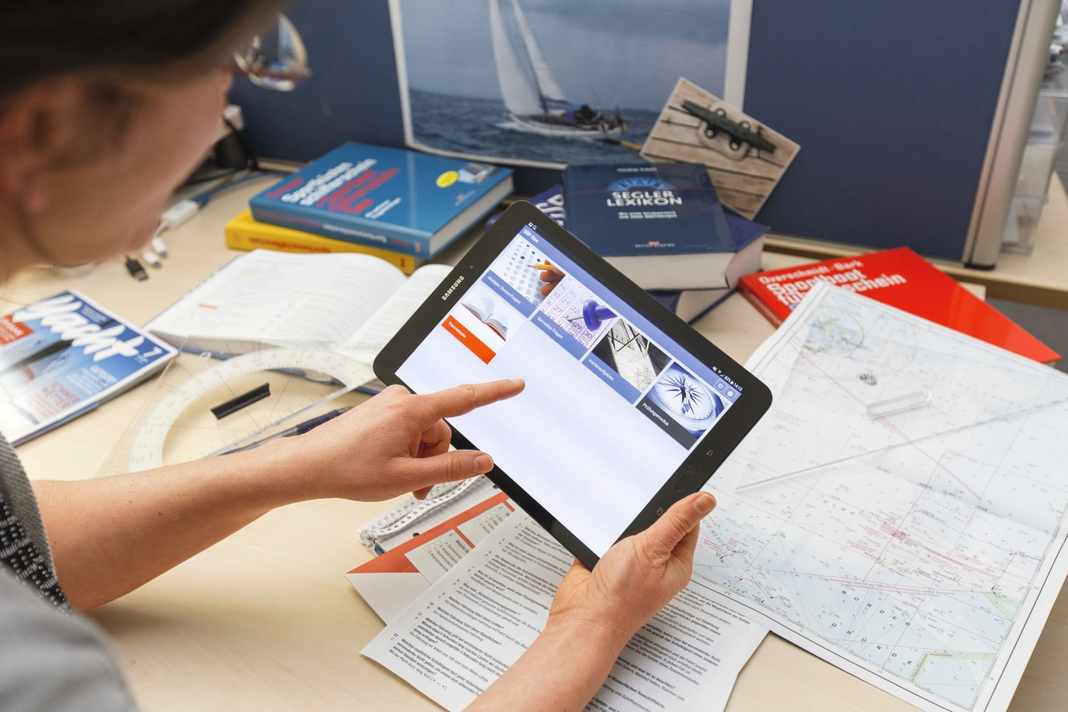





The Internet simplifies many processes considerably. While registering your own yacht in a German shipping register involves considerable bureaucratic effort, interested parties can choose from a large number of flags online.
Various websites offer boat registrations in countries such as Poland, San Marino, the Netherlands, St Kitts and Nevis, Ireland, Panama or Gibraltar. Registering a yacht can be done with just a few clicks and an investment of a few hundred - or even a thousand - euros. Setting up an offshore company is also straightforward.
What is new is that it is now possible to obtain not only boat registrations but also recreational boating licences online. Alleged legal loopholes at EU level are supposed to make it possible to obtain a German recreational boating licence without taking an exam. This has certainly piqued my interest.
Legal loophole: Boat licence without examination
In Germany, there are several types of recreational boating licences that are required depending on the type of boat and sailing area. The recreational boating licence for the sea is required for sailing motorised recreational boats on maritime waterways with an engine power of 15 hp or more. It is mandatory for the coastal waters of the North Sea and Baltic Sea as well as for the Bodden waters. And I can simply buy this licence online?
According to the website fuehrerscheinfabrik.com, this amazing offer is made possible by a legal loophole: "As there is no obligation to obtain an inland or sea recreational boating licence in Ireland, but it can be obtained, there is a legal loophole that we exploit. This allows you to obtain a completely legal boating licence without having to take an exam. We then convert the licence into a German boating licence."
The country of origin principle
In many other countries - as in Germany - the operation of pleasure craft is also linked to the possession of a corresponding licence. However, the regulations can vary considerably. The so-called country of origin principle ensures order here.
This means that the regulations of the skipper's home country also apply abroad. A German skipper who is in possession of a valid German recreational boating licence is generally permitted to skipper boats abroad, provided his licence in his home country is sufficient for the boat and sailing area in question.
This applies to all countries that have signed ICC Resolution No. 40. These include Germany, England, Austria, Switzerland, Poland, Norway, the Netherlands, Ireland, Italy, France, Croatia, America and others. However, it is advisable to check the exact regulations of the respective host country, as there may be exceptions and additional requirements.
UN Resolution No. 40 deals with the recognition of foreign recreational boating licences and aims to simplify conditions for recreational boaters sailing across borders. It calls on member states to recognise boating licences from other countries, provided they meet international standards.
UN Resolution No. 40: What is the maximum length of a recreational craft?
However, the resolution leaves one key point open: The limit on the size of the boat to which this recognition applies. According to the EU Recreational Craft Directive, the maximum length of a recreational craft is 24 metres. However, the German Recreational Craft Licence Ordinance does not limit the length of recreational craft on maritime waterways. It therefore remains unclear whether the recreational craft licence for sea-going vessels abroad is sufficient for recreational craft over 24 metres.
According to the water police, any vessel built for sport and leisure purposes in Germany that is approved as a recreational craft can also be sailed with a recreational craft licence, regardless of its length. However, the German Sailing Association (DSV), which is responsible for driving licences alongside the German Motor Yacht Association (DMYV), expressly states on its website: "It is generally not possible to transfer foreign recreational boating licences. If you have an international certificate in accordance with Resolution No. 40 ECE, you will be exempt from the corresponding practical examination in Germany for a recreational craft licence."
Is buying a boating licence really legal?
And what applies now? The answer is simple. The DSV is right, of course, and the offer from führerscheinfabrik.com seems more than dubious on closer inspection. Admittedly, the website is well done. Detailed information, an imprint, privacy policy and many user reviews give the provider a reputable look.
Serious doubts about this already arise with the payment system. Payments can only be made anonymously using Bitcoin, crypto vouchers, Amazon vouchers or Paysafecards. For this reason alone, scepticism is appropriate.
This is also fuelled by a look at the legal notice. There is no telephone number or e-mail address for contacting the company, the address of the company headquarters in Wesel is not given, and according to the residents' registration office, the company owner is not registered there either.
So hands off and take the driving test instead.
Buying a pleasure craft licence: Validity and criminal law
In Germany, recreational boating licences obtained without a corresponding examination are invalid. Instead, German law stipulates that recreational boating licences may only be issued after successfully passing both a theoretical and a practical examination.
The acquisition and use of a driving licence purchased online can therefore have serious legal consequences, including fines and criminal prosecution.
In contrast to the driving licence scam on the internet, online yacht registrations work quite well and, above all, are generally legal. There are a few agencies behind the offers that have specialised in handling the formalities in the respective countries.
Online yacht registration: German skippers under the Polish flag
I myself have already obtained Polish registration for our clients several times via such portals, although in some cases it takes up to two months for the documents to arrive. In recent years, problems have become increasingly apparent, especially with the Polish flag. Many ships have been registered under the Polish flag, as this process is very simple and inexpensive.
In principle, anyone can register their vessel in Poland, even without having a residence in Poland or setting up a company there. The Polish licence for the commercial use of yachts is particularly popular, as there is no need for the authorities to carry out essential safety checks.
As a result, Poland was listed on the grey list of the Paris Memorandum of Understanding on Port State Control until July 2023, according to which ships flying the Polish flag were more frequently found to have committed safety-related violations.
It has been reported from Greek waters that the authorities there are increasingly focussing on Polish-flagged vessels. After all of this, we continue to recommend the German flag and thorough training for skippers to obtain a recreational boating licence.
The author: Benyamin Tanis


